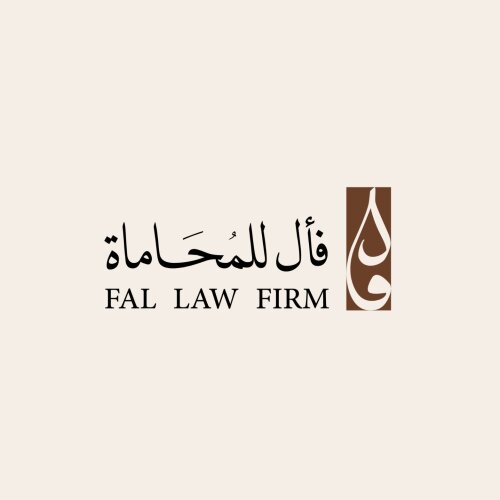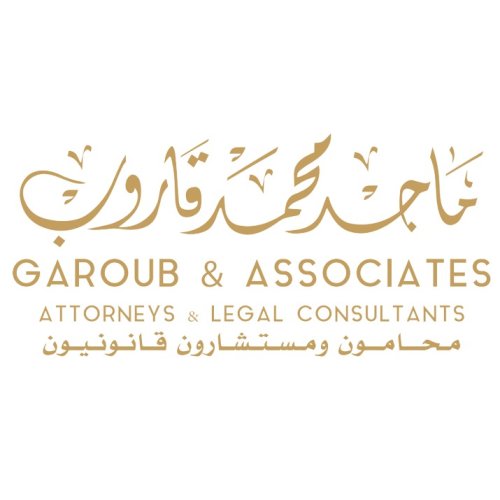Best Antitrust Litigation Lawyers in Riyadh
Share your needs with us, get contacted by law firms.
Free. Takes 2 min.
List of the best lawyers in Riyadh, Saudi Arabia

About Antitrust Litigation Law in Riyadh, Saudi Arabia
Antitrust litigation in Riyadh, Saudi Arabia, addresses legal disputes related to fair competition and market practices. It involves legal actions taken when businesses are suspected of engaging in anti-competitive behaviors, such as price fixing, market sharing, collusion, or abusing a dominant position in the market. Saudi Arabia, including Riyadh, has established robust antitrust regulations to protect both consumers and businesses, foster economic growth, and encourage healthy competition. The main legal framework governing antitrust matters in Riyadh is the Competition Law, administered and enforced by the General Authority for Competition (GAC).
Why You May Need a Lawyer
People or businesses may need legal assistance in antitrust litigation for several reasons. Common situations include:
- Facing investigations or fines from the General Authority for Competition for suspected violations of competition laws.
- Being accused by competitors or business partners of anti-competitive behavior, such as price fixing or market manipulation.
- Seeking compensation for damages resulting from the anti-competitive conduct of other companies, such as monopolistic practices or collusion.
- Needing guidance on compliance programs and preventive policies for their business operations in line with Saudi antitrust law.
- Negotiating settlements, submitting leniency applications, or defending a company in court during antitrust proceedings.
Antitrust litigation can involve complex legal and economic issues, requiring specialized legal expertise to navigate investigations, court actions, and interactions with regulatory bodies.
Local Laws Overview
Saudi Arabia's primary legislation concerning antitrust and competition is the Competition Law, last amended and implemented in 2019. Key aspects include:
- The law prohibits agreements, arrangements, or practices that reduce competition, such as price fixing, bid rigging, and division of markets or customers.
- Abuse of dominance is strictly forbidden. This refers to situations where a company holding substantial market power exploits its position to commit unfair practices or eliminate competition.
- There is a requirement for pre-notification and approval of certain mergers and acquisitions that may affect market competition.
- The General Authority for Competition is the regulatory body responsible for monitoring, investigating, and enforcing competition laws.
- Penalties can include significant financial fines, orders to stop anti-competitive behavior, and in serious cases, the dissolution of offending companies.
- The law grants affected parties the right to pursue civil actions for damages resulting from proven anti-competitive conduct.
Legal proceedings related to antitrust in Riyadh are generally conducted in Saudi courts, often with input or reports from the General Authority for Competition.
Frequently Asked Questions
What is considered anti-competitive behavior under Saudi law?
Anti-competitive behavior includes price fixing, dividing markets or customers, colluding with competitors, bid rigging, and abusing a dominant market position.
Who enforces competition law in Riyadh?
The General Authority for Competition is the governmental body responsible for investigating violations and enforcing competition law throughout Saudi Arabia, including Riyadh.
Can a business be penalized for attempting to monopolize a market?
Yes, Saudi law prohibits abuse of dominant position or attempts to monopolize markets, with significant penalties for violations.
Do merger transactions need approval from authorities?
Certain mergers and acquisitions that may affect market competition must be notified and approved by the General Authority for Competition before completion.
What penalties can be imposed for violating antitrust laws?
Penalties can include substantial fines, corrective measures, reimbursement of damages, and, in severe cases, business dissolution or public naming of offenders.
Is leniency available for companies that self-report violations?
Yes, Saudi Arabia has adopted leniency programs that may reduce or waive penalties for companies which self-report and cooperate with investigations.
Can individuals file lawsuits if they are affected by anti-competitive behavior?
Yes, individuals or businesses harmed by proven violations can file civil lawsuits to claim compensation for their losses.
How are antitrust cases usually resolved in Riyadh?
Cases may be resolved through administrative proceedings with the General Authority for Competition, or through civil litigation in the appropriate Saudi courts.
What should I do if my business is being investigated?
It is essential to seek legal advice as soon as possible to understand the investigation process, protect your rights, and prepare a defense or compliance strategy.
How long does an antitrust litigation process typically take?
The duration varies based on case complexity, evidence, and court procedures, but cases can often take several months to a few years from investigation to final judgment.
Additional Resources
You may find the following resources and organizations helpful for antitrust matters in Riyadh, Saudi Arabia:
- General Authority for Competition: The main regulatory agency overseeing competition law enforcement and educational resources about compliance requirements.
- Saudi Arabian Ministry of Commerce: Offers guidance on business regulations, including competition issues.
- Saudi legal bar associations and business chambers: Often provide legal referrals, seminars, and educational materials on antitrust and commercial law.
- Specialized law firms with expertise in antitrust and competition litigation.
Next Steps
If you believe you need legal assistance related to antitrust litigation in Riyadh, it is important to proceed as follows:
- Gather all relevant documents and information regarding your situation, such as contracts, correspondence, or notices from governmental bodies.
- Contact a qualified lawyer specialized in antitrust and competition law in Saudi Arabia for an initial consultation.
- Discuss your legal options, including potential defenses, compliance strategies, or filing a claim if you are an affected party.
- Follow your lawyer's guidance throughout the process, including interactions with authorities, documentation, and representation in court if necessary.
- Stay informed about your obligations under the Competition Law to avoid future legal risks.
Taking prompt action and seeking professional legal advice are crucial to effectively manage antitrust issues in Riyadh, Saudi Arabia.
Lawzana helps you find the best lawyers and law firms in Riyadh through a curated and pre-screened list of qualified legal professionals. Our platform offers rankings and detailed profiles of attorneys and law firms, allowing you to compare based on practice areas, including Antitrust Litigation, experience, and client feedback.
Each profile includes a description of the firm's areas of practice, client reviews, team members and partners, year of establishment, spoken languages, office locations, contact information, social media presence, and any published articles or resources. Most firms on our platform speak English and are experienced in both local and international legal matters.
Get a quote from top-rated law firms in Riyadh, Saudi Arabia — quickly, securely, and without unnecessary hassle.
Disclaimer:
The information provided on this page is for general informational purposes only and does not constitute legal advice. While we strive to ensure the accuracy and relevance of the content, legal information may change over time, and interpretations of the law can vary. You should always consult with a qualified legal professional for advice specific to your situation.
We disclaim all liability for actions taken or not taken based on the content of this page. If you believe any information is incorrect or outdated, please contact us, and we will review and update it where appropriate.
















